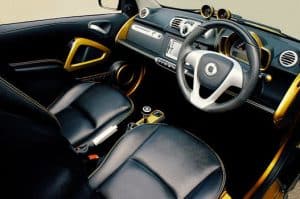Connected Ecosystems: When Your Car Knows Your Calendar
In the constantly evolving world of technology, we are increasingly surrounded by interconnected devices that aim to make our lives easier. From smartphones to smart homes, the Internet of Things (IoT) has expanded its reach into various facets of our daily routines. One such emerging trend is the concept of “connected ecosystems,” where devices are connected and communicate with each other seamlessly. And the latest addition to this ecosystem is the integration of our cars with our calendars. Yes, you read it right! Your car can now know your calendar and respond accordingly. In this article, we will delve into the world of connected ecosystems and explore the potential of this new integration between our cars and calendars.
What are Connected Ecosystems?
Connected ecosystems refer to the network of interconnected devices and systems that work together to create a seamless and personalized experience for users. It involves the integration of various technologies, such as the Internet of Things (IoT), artificial intelligence (AI), and cloud computing, to provide a unified and intelligent approach to tasks. This interconnectedness enables devices to collect and share data, make decisions, and perform actions without human intervention.
The Evolution of Connected Ecosystems
The idea of connected ecosystems is not new. Over the years, various industries have integrated different devices and technologies to create more intelligent and efficient systems. For instance, in the early 2000s, the emergence of a digital home ecosystem brought together various devices such as TVs, music systems, and security systems, all interconnected and controlled through a central hub. This concept was later extended to smart homes, where devices are connected to the internet and can be controlled remotely.
Similarly, the automotive industry has also been experimenting with connected ecosystems for quite some time. Initially, this involved features such as GPS navigation, entertainment systems, and emergency call services. However, with the advancements in technology, the scope of connected ecosystems in cars has expanded to include more personalized and seamless features.
The Next Step: Cars Knowing Your Calendar
In the era of smart devices and interconnected systems, the integration of our cars with our calendars was inevitable. This new alliance between our modes of transportation and our schedules aims to provide a more personalized and efficient driving experience. The integration works by syncing your car with your calendar, enabling it to access your schedule, location, and other relevant data to make your journey more convenient and productive.
How Does it Work?
The integration of your car with your calendar involves the use of various technologies. Firstly, the car must have an internet connection to be able to access your calendar, which can be either through a built-in SIM card or through a smartphone connection. The car then uses AI and machine learning algorithms to analyze your calendar data and create a personalized route for your journey.
For instance, if you have a meeting scheduled at 3 pm, your car will access your calendar, determine your current location, and analyze real-time traffic data to suggest the most efficient route to your destination. This feature eliminates the need for manually entering addresses into your car’s navigation system, saving you time and effort.
More Than Just a Route Planner
But the integration between your car and calendar goes beyond just providing you with a recommended route. With the use of AI and machine learning, your car can also predict your future trips based on your calendar, and consequently, adjust its settings and route accordingly. For instance, if you have an out-of-town meeting scheduled the next day, your car can automatically adjust its tire pressure and fuel consumption to match the long-distance journey.
This integration also extends to smart home devices. For instance, if you have a meeting scheduled late at night, your car can automatically send a notification to your smart home system to turn on the lights and adjust the thermostat before you reach home.
The Benefits of a Connected Ecosystem
The integration between your car and calendar brings a wide range of benefits, including convenience, efficiency, and productivity. By automating mundane tasks, it allows you to focus on more important matters while on the road. Additionally, with the use of real-time data and predictive analysis, it also ensures a safer and more comfortable driving experience. Moreover, the integration also reduces the need for multiple devices, as your car acts as a central hub for various tasks.
Furthermore, this integration also paves the way for a more sustainable future. By optimizing routes, reducing fuel consumption, and promoting efficient driving, it contributes to the reduction of carbon emissions and a greener environment.
The Future of Connected Ecosystems
The integration of your car with your calendar is just one example of the potential of connected ecosystems. As the technology advances, we can expect to see more integrations that will revolutionize the way we interact with our surroundings. For instance, companies are already working on integrating our cars with our fitness trackers and health data, allowing for a more holistic approach to our well-being.
Are There Any Concerns?
As with any new technology, there are bound to be concerns regarding privacy and security. With the vast amount of data being collected and shared between devices, the risk of data breaches and misuse cannot be ignored. However, with proper security measures in place, these concerns can be addressed and mitigated.
Conclusion
The integration of our cars with our calendars is a significant advancement in the world of connected ecosystems. It brings together technology from various industries to create a truly interconnected and intelligent system. With the potential to make our lives more convenient, efficient, and sustainable, it is safe to say that the integration between our cars and calendars is just the beginning of what connected ecosystems have to offer.
So, get ready to bid farewell to the days of manually inputting addresses into your car’s navigation system and say hello to a more personalized and seamless driving experience with the integration of your car and calendar!


